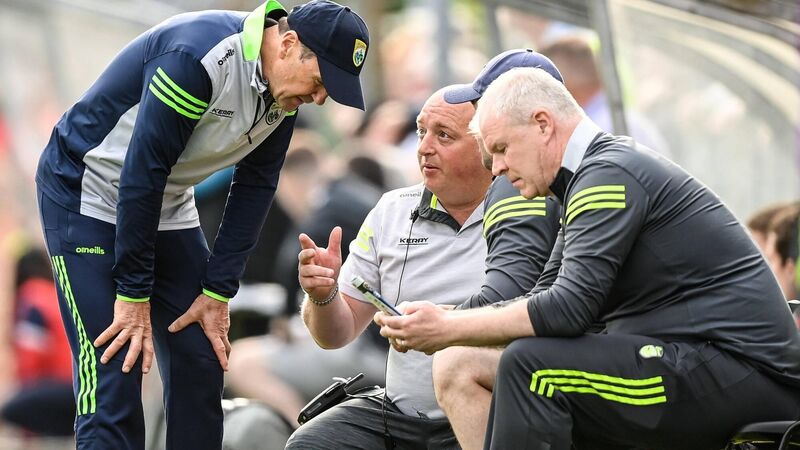Michael Moynihan: Fit for selection? It depends on your point of view

7 May 2022; Kerry manager Jack O'Connor with kit manager Colm Whelan and selector Diarmuid Murphy, right, during the Munster GAA Football Senior Championship Semi-Final match between Cork and Kerry at Páirc Ui Rinn in Cork. Photo by Stephen McCarthy/Sportsfile
Good to chat last week to Micheal Donoghue and TJ Ryan about selectors and managers, one of my long-time obsessions.
When you’re at an intercounty game and you clock the little gathering on the sideline, you can’t help wondering: what are they talking about?









